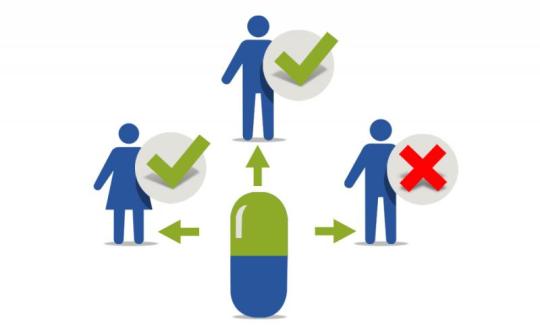#DiagnosticInnovation
Explore tagged Tumblr posts
Link
#MicrobiologyTesting#DiagnosticInnovation#ClinicalDiagnostics#LabAutomation#PathogenDetection#MolecularDiagnostics#BioTech#HealthcareInnovation#InfectiousDiseaseTesting#PCRTech...
0 notes
Text
Companion Diagnostics Market worth $5.04 Bn by 2030 Globally, at a CAGR of 12.3%, says iDataAcumen

The report "Global Companion Diagnostics Market - Global Forecast to 2030", is approximated to be USD 5.04 Billion in 2023, and it is projected to reach USD 11.3 Billion by 2030, at a CAGR of 12.3%.
In the realm of modern medicine, the emergence of companion diagnostics has ushered in a new era of precision and personalized healthcare. These innovative tools, which enable healthcare providers to tailor treatment strategies to the individual characteristics of each patient, are revolutionizing the way we approach disease management and therapeutic decision-making.
One of the key dynamics driving growth in the Companion Diagnostics Market is the increasing prevalence of complex and chronic diseases. As the global burden of conditions such as cancer, cardiovascular diseases, and infectious diseases continues to rise, there is a growing demand for targeted and effective treatment options. Companion diagnostics play a crucial role in this landscape, empowering clinicians to identify patients who are most likely to benefit from specific therapies, thereby optimizing treatment outcomes and reducing healthcare costs.
Moreover, advancements in genomic technology and biomarker discovery have expanded the scope of companion diagnostics, enabling the development of more sophisticated and reliable testing platforms. From next-generation sequencing to liquid biopsy assays, these cutting-edge technologies are enhancing the accuracy and sensitivity of diagnostic tests, paving the way for more personalized and effective treatment approaches.
Furthermore, the growing trend towards value-based healthcare and patient-centric approaches is driving the adoption of companion diagnostics across the healthcare ecosystem. By providing actionable insights into patient response to therapy, these tests not only improve clinical outcomes but also empower patients to take an active role in their own healthcare journey, fostering a sense of empowerment and collaboration between patients and healthcare providers.
In conclusion, the Companion Diagnostics Market represents a paradigm shift in healthcare delivery, offering a more precise, personalized, and patient-centric approach to disease management. As we continue to unlock the potential of companion diagnostics to transform the way we diagnose, treat, and prevent diseases, the future holds boundless opportunities for innovation, collaboration, and improved patient outcomes.
#healthcareinnovation#diseasemanagement#improvedoutcomes#companiondiagnostics#precisionmedicine#personalizedhealthcare#chronicdiseases#targetedtherapies#optimizedtreatment#genomictechnology#biomarkerdiscovery#diagnosticinnovation#valuebasedhealthcare#patientcentriccare#empowerment
0 notes
Text
The Role of Molecular Quality Controls in Modern Healthcare
Molecular Quality Controls are essential tools in molecular diagnostics, ensuring the accuracy and reliability of laboratory tests used to detect and quantify nucleic acids.
These controls, which include positive, negative, and internal controls, are crucial for validating test performance, monitoring assay conditions, and identifying potential errors in testing procedures. By incorporating molecular quality controls into diagnostic workflows, laboratories can maintain high standards of precision and consistency, ultimately enhancing patient care through accurate and timely disease detection. As the field of molecular diagnostics continues to evolve, the role of quality controls becomes increasingly vital in supporting the development and implementation of advanced testing technologies. #MolecularQualityControls #Diagnostics #LabAccuracy #MolecularDiagnostics #TestValidation #LabStandards #PrecisionMedicine #DiagnosticQuality #HealthcareInnovation #LabTesting #DiseaseDetection #TestReliability #ClinicalDiagnostics #QualityAssurance #LabTools #MedicalTesting #MolecularBiology #HealthTech #DiagnosticInnovation #PatientCare
0 notes
Text
"Unlocking Hope: The Promise of Cancer Biomarkers 🧬🔍"
Cancer biomarkers represent a beacon of hope in the battle against cancer, offering insights into disease detection, prognosis, and treatment response.
These molecular signatures, found in blood, tissue, or other bodily fluids, provide invaluable clues about the presence, type, and progression of cancer, enabling earlier diagnosis and personalized treatment strategies. From genetic mutations to protein expression patterns, biomarkers serve as diagnostic tools, guiding clinicians in selecting the most effective therapies for individual patients. As the field of oncology embraces precision medicine, the importance of biomarker-driven approaches cannot be overstated, offering targeted therapies that minimize side effects and improve outcomes. With hashtags like #CancerBiomarkers, #PrecisionMedicine, #EarlyDetection, #PersonalizedTreatment, #BiomarkerDiscovery, #CancerResearch, #MolecularSignatures, #DiagnosticInnovation, #TherapeuticTargets, #OncologyCare, #MedicalBreakthroughs, #HealthcareInnovation, #DiseaseDetection, #TreatmentResponse, and #FutureOfOncology, the ongoing dialogue underscores the transformative impact of biomarkers in shaping the future of cancer care. As research continues to uncover new biomarkers and refine existing ones, the potential to revolutionize cancer diagnosis and treatment remains within reach, offering hope to patients and families affected by this devastating disease. 🎗️🔬
0 notes
Photo

(via Rapid Microbiology Testing: Revolutionizing Clinical Diagnostics in 2024)
0 notes
Link
0 notes